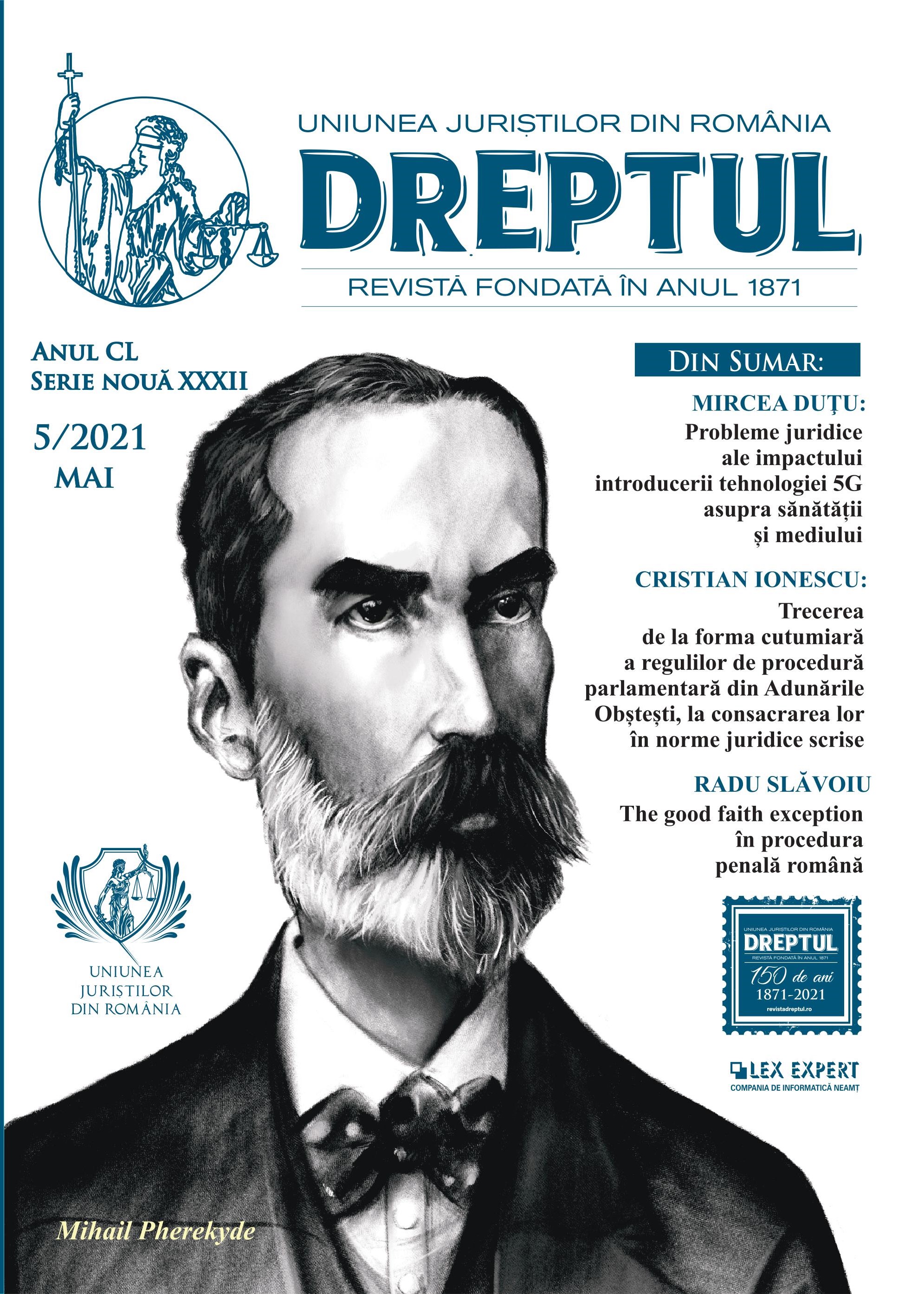Trecerea de la forma cutumiară a regulilor de procedură parlamentară din Adunările obștești la consacrarea lor în norme juridice scrise
The transition from the customary form of the rules of parliamentary procedure in the Legislative Assemblies to their establishment in written legal norms
Author(s): Cristian IonescuSubject(s): History of Law
Published by: Uniunea Juriștilor din România
Keywords: parliamentary custom; parliamentary traditions; Assemblies of States; representative assembly; parliamentary law; the Organic Regulations; the modern Parliament; parliamentary regulations;
Summary/Abstract: The formation of public law in the Romanian Principalities bears, on the one hand, the imprint of the political will of the states with strong influence in this part of Europe in the first half of the 19th century, and, on the other hand, it reflects the spirit of Western constitutional thought and practice, much modernized after the French Revolution of 1789. Concerned with the constitutional and administrative modernization of the two Principalities were mainly Russia, France, England and Austria, each of these great European powers pursuing, in fact, their own objectives, of political and economic nature. Instead, Turkey did not support at all the modernization of Wallachia and Moldova, being interested in maintaining the Phanariot regime. At the confluence of the contradictory interests of these powers, the Principalities did not have an active, decisive role in their own constitutional and administrative modernization. Nevertheless, the changes and transformations produced in the Principalities at the initiative and with the determination of the mentioned states, were generated by the clauses of some international documents (the Treaty of Adrianople of 1829, the Peace Treaty between Russia and Turkey of 1856 and the Paris Convention of 1858). To these it is added the Developing Statute of the Paris Convention, imposed by the will of Prince Alexandru Ioan Cuza.Within the constitutional modernization of the Principalities it was also included the Parliament, regardless of what name it bore and what organizational structure it had. What is certain is that in this process of institutional modernization, the feudal Legislative Assemblies have gradually transformed into a Western-style representative assembly, in which the old custom was replaced by parliamentary regulations, elaborated according to the models of the Western parliaments.The present study is devoted to these issues, in which the author analyzes, based on an extensive historical and legislative documentation, the process by which the old parliamentary custom formed for a long time in the medieval Legislative Assemblies was replaced by rules and procedures written in modern parliamentary regulations.
Journal: Revista „Dreptul”
- Issue Year: 2021
- Issue No: 05
- Page Range: 97-113
- Page Count: 17
- Language: Romanian
- Content File-PDF

